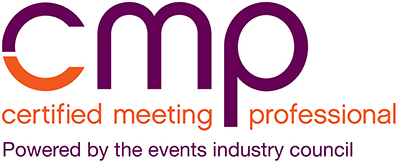Budgeting best practices
![]() Print this Article | Send to Colleague
Print this Article | Send to Colleague
 Eleven percent of the CMP exam covers financial management (Domain D). This domain covers the critical skills needed for the financial success of a meeting or event. These include managing event funding and reserves, managing the budget and managing monetary transactions. The domain also includes identifying and managing sponsorship programmes, grants, registration processes, exhibit sales and other miscellaneous revenue sources. Below are some recommendations for avoiding commonly overlooked items or opportunities in each of the sub-skills areas of budgeting.
Eleven percent of the CMP exam covers financial management (Domain D). This domain covers the critical skills needed for the financial success of a meeting or event. These include managing event funding and reserves, managing the budget and managing monetary transactions. The domain also includes identifying and managing sponsorship programmes, grants, registration processes, exhibit sales and other miscellaneous revenue sources. Below are some recommendations for avoiding commonly overlooked items or opportunities in each of the sub-skills areas of budgeting.
SUB SKILL 8.1 - Develop budget using accepted accounting principles to align with the goals, objectives and financial parameters of the event
Avoid the following:
- Budgeting too close and not allowing for a contingency
- Forgetting the plus, plus (taxes and gratuities or service charges)
- Calculating a variable expenses as a fixed expense
- Using the contracted venue food and beverage minimum as the anticipated actual expense
- Not negotiating deals before signing a contract
- Overestimating income on a fee-based event
SUB SKILL 8.2 - Establish pricing (e.g., registration, sponsorships, exhibits) based on market analysis to meet financial targets and goals
Avoid the following:
- Calculating estimated airfare or hotel charges from discount websites
- Neglecting to add in costs such as shipping and printing fees, delivery fees, labor fees, resort fees, or mandatory service fees
- Forgetting the hard costs of sponsorship and deliverables such as signage, free registration, gifts, and complimentary tickets
SUB SKILL 8.3 - Monitor and revise budget using established audit procedures to identify potential adjustments. Avoid the following:
- Re-calculating a variable expense after the guarantees have been given or items have been ordered
- Watch out for hidden costs in catering
- Waiting until just before the event to plug in actual income and expense
- Not having a contingency plan for reducing expenses if income does not meet the goal
There are many, many more budgeting best practices and red flags to avoid. My most basic practice is treating my employer or client’s money and budget as if it were my personal money to spend, and to be a good steward of those funds.


